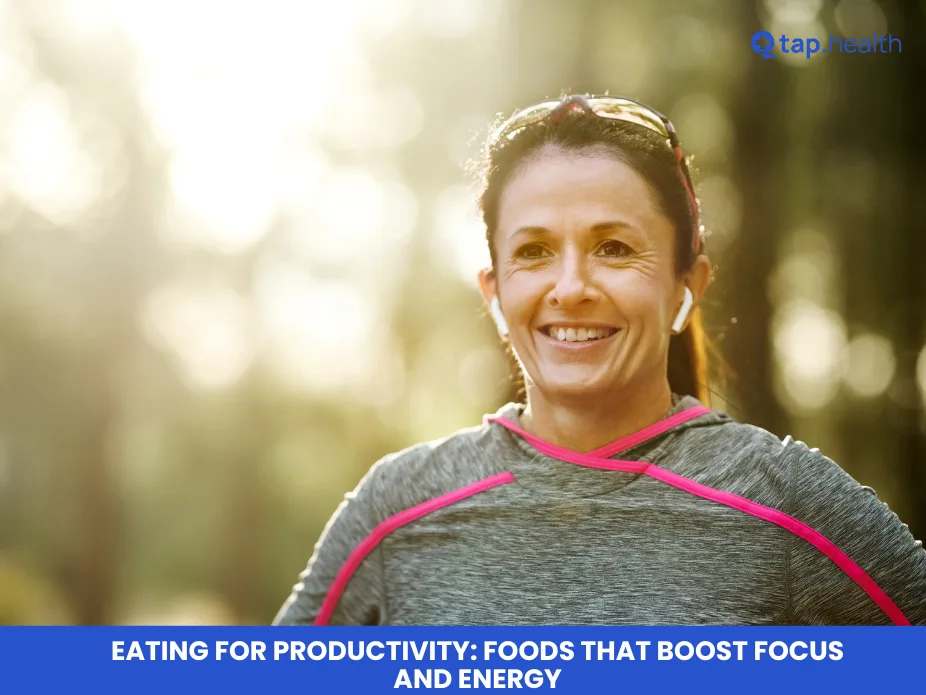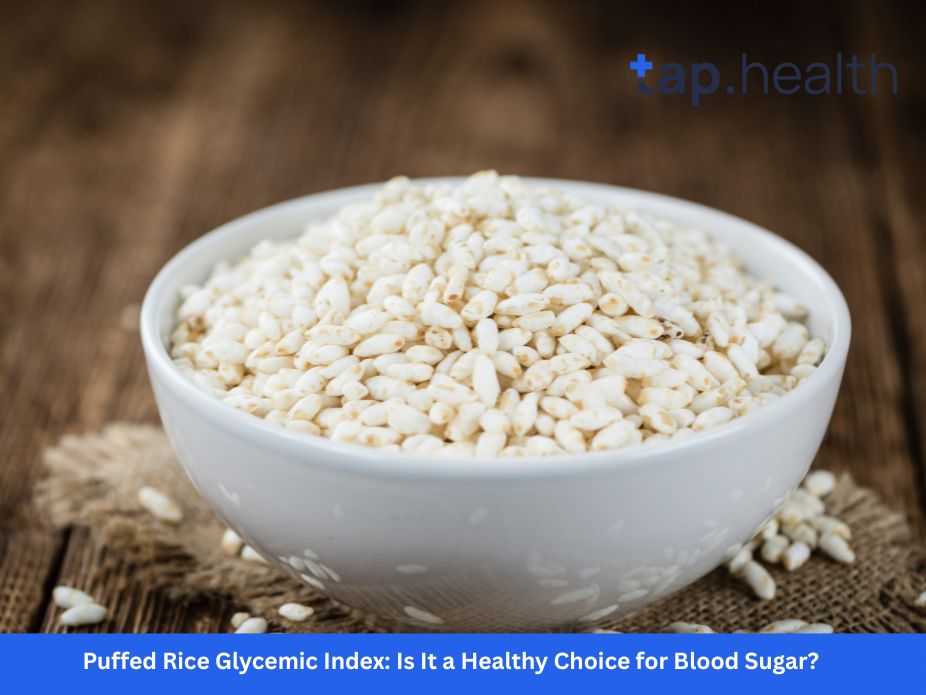In today’s fast-paced world, productivity is essential to success, whether you’re tackling a work project, studying for exams, or managing personal tasks. But how often do we consider that what we eat can directly affect our ability to focus, stay energized, and perform at our best? Eating the right foods can provide a mental boost, improve cognitive function, and sustain energy levels throughout the day.
In this article, we will explore how nutrition influences productivity and highlight specific foods that help enhance mental clarity, focus, and energy.
The Link Between Nutrition and Productivity
The human brain requires a significant amount of energy to function optimally. In fact, the brain consumes about 20% of the body’s total energy, despite accounting for only 2% of total body weight. Therefore, the fuel we provide through food plays a crucial role in how well our brain works.
When we eat, our bodies break down food into glucose, which is the primary fuel for the brain. However, not all foods have the same effect on our blood sugar levels, and choosing the wrong types of food can lead to energy crashes and difficulty concentrating. On the other hand, nutrient-dense foods that provide steady energy can keep your brain sharp and focused.
How Food Affects Brain Function
- Blood Sugar Levels: Foods that cause rapid spikes in blood sugar, like sugary snacks and refined carbs, can lead to a quick energy boost followed by a significant crash, which hampers focus and mental clarity. Conversely, complex carbohydrates and foods rich in protein can provide sustained energy.
- Nutrient Supply: Vitamins and minerals, including omega-3 fatty acids, B vitamins, magnesium, and antioxidants, play a vital role in brain health and cognitive function. They support neurotransmitter function, reduce inflammation, and protect the brain from oxidative stress.
- Hydration: Dehydration can severely affect cognitive performance, leading to difficulty concentrating, mental fatigue, and mood disturbances. Staying hydrated is essential for maintaining mental clarity.
Real-Life Scenarios
Consider these real-life examples of how food choices can impact focus and productivity:
- Emily, a software developer, spends long hours coding and problem-solving. She starts her day with a quick sugary cereal and coffee. By mid-morning, she feels mentally foggy and struggles to stay focused. After switching to a breakfast of scrambled eggs with spinach and avocado, she notices a significant improvement in her concentration and energy levels, helping her power through tasks without feeling drained.
- James, a busy executive, used to rely on energy drinks and processed snacks during meetings. He found that while these options gave him a temporary boost, he often felt jittery or crashed afterward. Once he swapped energy drinks for green tea and chose nuts, fruits, and whole grains for snacks, he found his productivity increased and his energy remained consistent throughout the day.
These examples highlight the profound impact of food choices on focus, energy, and overall productivity. By making better nutritional decisions, both Emily and James can fuel their bodies and brains for optimal performance.
Foods That Boost Focus and Energy
The right foods can provide your brain with the nutrients it needs to stay sharp, energized, and productive. Below are some of the best foods to include in your diet for enhanced focus and sustained energy.
1. Oats: The Power of Slow-Digesting Carbs
Oats are an excellent source of complex carbohydrates, which are digested slowly, providing a steady release of energy throughout the day. This helps maintain stable blood sugar levels and prevents energy crashes. Oats are also rich in fiber, which aids digestion and supports overall health.
Why it works: Oats help maintain steady glucose levels, providing lasting energy. The fiber also aids brain function by ensuring your body receives a consistent supply of energy.
Recommendation: Start your day with a bowl of oatmeal topped with berries, nuts, and seeds to boost brain power.
2. Fatty Fish (Salmon, Mackerel, Sardines)
Fatty fish are rich in omega-3 fatty acids, which play a crucial role in brain health. Omega-3s help improve memory, concentration, and mood by supporting the structure and function of brain cells. They also have anti-inflammatory effects that protect the brain from oxidative stress, which can impair cognitive function.
Why it works: Omega-3 fatty acids improve cognitive function, enhance focus, and reduce mental fatigue.
Recommendation: Aim to include fatty fish in your diet two to three times a week. You can also opt for omega-3-rich plant sources like chia seeds, walnuts, and flaxseeds.
3. Nuts and Seeds
Nuts and seeds, particularly almonds, walnuts, flaxseeds, and pumpkin seeds, are rich in healthy fats, protein, and magnesium. These nutrients support brain function, improve focus, and provide a sustained source of energy.
Why it works: Nuts and seeds are great sources of magnesium, which helps regulate cortisol (the stress hormone), and healthy fats that support cognitive function.
Recommendation: Snack on a small handful of mixed nuts and seeds or sprinkle them over your yogurt or salad for a brain-boosting boost.
4. Leafy Greens (Spinach, Kale, Swiss Chard)
Leafy greens are packed with folate, a B vitamin that plays an essential role in the production of dopamine and serotonin—neurotransmitters that regulate mood, focus, and concentration. They also contain antioxidants that protect the brain from oxidative damage and promote cognitive health.
Why it works: Folate supports mental clarity and focus by regulating mood-enhancing neurotransmitters. Antioxidants protect brain cells from oxidative damage caused by stress.
Recommendation: Incorporate leafy greens into your meals, such as in salads, smoothies, or omelets, to keep your mind sharp.
5. Eggs: The Ultimate Brain Food
Eggs are an excellent source of protein, B vitamins, and choline—a nutrient that plays a key role in brain function. Choline helps produce acetylcholine, a neurotransmitter involved in memory and focus. Eggs also contain tryptophan, which helps regulate mood and promote relaxation.
Why it works: Choline improves memory, while the B vitamins support cognitive function and reduce mental fatigue.
Recommendation: Enjoy eggs as a breakfast option (scrambled, boiled, or poached), or add them to salads and sandwiches for an energy-boosting snack.
6. Berries: Nature’s Brain Booster
Berries, especially blueberries, are rich in antioxidants, particularly flavonoids, which have been shown to improve memory and cognitive function. These antioxidants protect the brain from oxidative stress and inflammation, supporting mental clarity and focus.
Why it works: Antioxidants in berries help protect the brain from free radical damage, improving overall brain health and enhancing cognitive performance.
Recommendation: Add a handful of berries to your yogurt, smoothies, or oatmeal to give your brain a quick boost.
7. Dark Chocolate
Dark chocolate contains flavonoids, caffeine, and theobromine, all of which have been shown to improve cognitive function, increase alertness, and elevate mood. Dark chocolate (70% cocoa or higher) is also a source of magnesium, which helps regulate stress.
Why it works: Dark chocolate provides a quick mental boost, enhances blood flow to the brain, and improves mood and focus.
Recommendation: Opt for a small piece of dark chocolate (about 1 ounce) as an afternoon snack to keep your energy levels up.
8. Avocados
Avocados are packed with monounsaturated fats, which support healthy blood flow to the brain. They also contain vitamin K, which helps protect brain cells and supports cognitive function. Additionally, avocados are rich in fiber, helping to maintain stable blood sugar levels.
Why it works: The healthy fats in avocados improve brain health and focus, while the fiber helps maintain energy levels throughout the day.
Recommendation: Enjoy avocado on toast, in salads, or blended into smoothies for a healthy brain-boosting snack.
9. Green Tea
Green tea contains caffeine and L-theanine, a unique combination that boosts focus and alertness while promoting relaxation. Caffeine increases mental alertness, while L-theanine helps reduce stress and anxiety, creating a calm, focused state of mind.
Why it works: The combination of caffeine and L-theanine helps improve focus and cognitive function while reducing mental fatigue.
Recommendation: Swap your morning coffee for a cup of green tea to improve focus without the jitters.
10. Water: Stay Hydrated for Optimal Performance
Hydration is often overlooked, but water is essential for maintaining cognitive function. Dehydration can impair concentration, memory, and mood. Drinking enough water helps ensure that your brain stays sharp and that you remain focused throughout the day.
Why it works: Staying hydrated supports optimal brain function and prevents fatigue, helping you maintain energy and focus.
Recommendation: Aim to drink at least 8 glasses of water per day. If you’re active or in a warm climate, increase your intake accordingly.
Expert Contributions
Nutritionists and experts in brain health emphasize the importance of a balanced diet for improving focus and productivity. According to Dr. Uma Naidoo, a psychiatrist and nutritional expert, “What we eat has a direct impact on our mental clarity and cognitive function. A diet rich in healthy fats, proteins, and antioxidants can significantly boost productivity and mental well-being.”
Dr. John Ratey, an expert in the field of psychiatry, also notes, “Brain health is directly tied to the food we eat. Diets rich in nutrients like omega-3 fatty acids, vitamins, and minerals are essential for maintaining focus, concentration, and energy levels.”
FAQs About Eating for Productivity
Q1: Can eating certain foods really improve my focus?
Yes, consuming foods rich in healthy fats, protein, and antioxidants can significantly enhance focus, cognitive function, and productivity. Nutrient-dense foods help stabilize blood sugar and provide the brain with the necessary fuel to work efficiently.
Q2: Is coffee bad for productivity?
Moderate coffee consumption can improve alertness and focus, thanks to caffeine. However, it’s important not to rely on coffee alone. Pairing coffee with a nutrient-dense breakfast can help maintain energy levels throughout the day.
Q3: How can I avoid the mid-afternoon energy slump?
To avoid the afternoon crash, focus on eating balanced meals with complex carbs, healthy fats, and protein. Avoid sugary snacks and refined carbs, which can cause blood sugar spikes followed by crashes.
Q4: Are there any foods I should avoid for better focus?
Yes, foods that are high in refined sugars, processed fats, and artificial additives can impair focus and mental clarity. It’s best to avoid sugary snacks, sodas, and fast food, as they can lead to energy crashes and reduce productivity.
Q5: How soon will I notice a difference in my productivity after changing my diet?
You may start noticing improvements in focus and energy levels within a few days to a week of eating nutrient-dense foods. For long-term benefits, it’s important to make these dietary changes a consistent part of your routine.
Sources:
- Harvard T.H. Chan School of Public Health: Nutrition and Cognitive Function
- National Institutes of Health (NIH): Omega-3 Fatty Acids and Brain Health
- Mayo Clinic: The Brain Benefits of Eating Well



